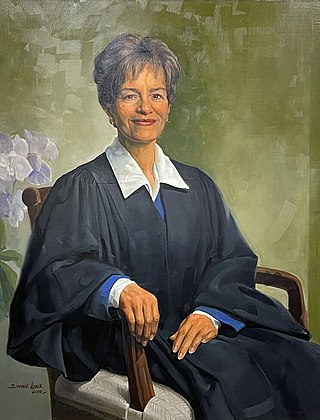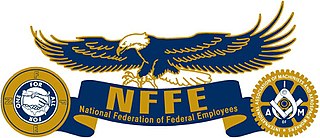The Universal Postal Union, established by the Treaty of Bern of 1874, is a specialized agency of the United Nations (UN) that coordinates postal policies among member nations, in addition to the worldwide postal system. The UPU contains four bodies consisting of the Congress, the Council of Administration (CA), the Postal Operations Council (POC) and the International Bureau (IB). It also oversees the Telematics and Express Mail Service (EMS) cooperatives. Each member agrees to the same terms for conducting international postal duties. The UPU's headquarters are located in Bern, Switzerland.

The United States Postal Service (USPS), also known as the Post Office, U.S. Mail, or Postal Service, is an independent agency of the executive branch of the United States federal government responsible for providing postal service in the U.S., including its insular areas and associated states. It is one of the few government agencies explicitly authorized by the U.S. Constitution. The USPS, as of 2021, has 516,636 career employees and 136,531 non-career employees.
Hustler Magazine, Inc. v. Falwell, 485 U.S. 46 (1988), is a landmark decision by the Supreme Court of the United States in which the Court held that parodies of public figures, even those intending to cause emotional distress, are protected by the First and Fourteenth Amendments to the U.S. Constitution.

Hustler is a monthly pornographic magazine published by Larry Flynt Publications (LFP) in the United States. Introduced in 1974, it was a step forward from the Hustler Newsletter, originally conceived by founder Larry Flynt as cheap advertising for his strip club businesses at the time. The magazine grew from an uncertain start to a peak circulation of around 3 million in the early 1980s; it has since dropped to approximately 500,000. Hustler was among the first major US-based magazines to feature graphic photos of female genitalia and simulated sex acts, in contrast with relatively modest publications such as Playboy. In the 1990s, Hustler, like several of its competitors, began featuring hardcore depictions of sexual penetration and oral sex.
Franking comprises all devices, markings, or combinations thereof ("franks") applied to mails of any class which qualifies them to be postally serviced. Types of franks include uncanceled and precanceled postage stamps, impressions applied via postage meter, official use "Penalty" franks, Business Reply Mail (BRM), and other permit Imprints (Indicia), manuscript and facsimile "franking privilege" signatures, "soldier's mail" markings, and any other forms authorized by the 192 postal administrations that are members of the Universal Postal Union.

The National Voter Registration Act of 1993 (NVRA), also known as the Motor Voter Act, is a United States federal law signed into law by President Bill Clinton on May 20, 1993, that came into effect on January 1, 1995. The law was enacted under the Elections Clause of the United States Constitution and advances voting rights in the United States by requiring state governments to offer simplified voter registration processes for any eligible person who applies for or renews a driver's license or applies for public assistance, and requiring the United States Postal Service to mail election materials of a state as if the state is a nonprofit. The law requires states to register applicants that use a federal voter registration form, and prohibits states from removing registered voters from the voter rolls unless certain criteria are met.
Mail fraud and wire fraud are terms used in the United States to describe the use of a physical or electronic mail system to defraud another, and are U.S. federal crimes. Jurisdiction is claimed by the federal government if the illegal activity crosses interstate or international borders.

The American Letter Mail Company was started by Lysander Spooner in 1844, competing against the legal monopoly of the United States Post Office.

Judith Ann Wilson Rogers, is a Senior United States circuit judge of the United States Court of Appeals for the District of Columbia Circuit.
Dolan v. United States Postal Service, 546 U.S. 481 (2006), was a case decided by the Supreme Court of the United States, involving the extent to which the United States Postal Service has sovereign immunity from lawsuits brought by private individuals under the Federal Tort Claims Act. The Court ruled that an exception to the FTCA that barred liability for the "negligent transmission of mail" did not apply to a claim for injuries caused when someone tripped over mail left by a USPS employee. Instead, the exception only applied to damage caused to the mail itself or that resulted from its loss or delay.
Commodity Futures Trading Commission v. Schor, 478 U.S. 833 (1986), was a case in which the Supreme Court of the United States held an administrative agency may, in some cases, exert jurisdiction over state-law counterclaims.
Hartman v. Moore, 547 U.S. 250 (2006), is a decision by the Supreme Court of the United States involving the pleading standard for retaliatory prosecution claims against government officials. After a successful lobbying attempt by the CEO of a manufacturing company against competing devices that the US Postal Service supported, the CEO found himself the target of an investigation by US postal inspectors and a criminal prosecution that was dismissed for lack of evidence. The CEO then filed suit against the inspectors and other government officials for seeking to prosecute him in retaliation for exercising his First Amendment rights to criticize postal policy. The Court ruled 5-2 that to prove that the prosecution was caused by a retaliatory motive, the plaintiff bringing such a claim must allege and prove that the criminal charges were brought without probable cause.
Merrell Dow Pharmaceuticals Inc. v. Thompson, 478 U.S. 804 (1986), was a United States Supreme Court decision involving the original jurisdiction of the federal district courts under 28 U.S.C. § 1331.
Paul Nestor Carlin was an American businessman and former United States Postal Service official. He served as the United States Postmaster General from January 1, 1985 to January 7, 1986.
MANual Enterprises, Inc. v. Day, 370 U.S. 478 (1962), is a decision by the United States Supreme Court which held that magazines consisting largely of photographs of nude or near-nude male models are not obscene within the meaning of 18 U.S.C. § 1461. It was the first case in which the Court engaged in plenary review of a Post Office Department order holding obscene matter "nonmailable."
Texas Monthly v. Bullock, 489 U.S. 1 (1989), was a case brought before the US Supreme Court in November 1988. The case was to test the legality of a Texas statute that exempted religious publications from paying state sales tax.

The National Federation of Federal Employees (NFFE) is an American labor union which represents about 100,000 public employees in the federal government.
Rowan v. Post Office Dept., 397 U.S. 728 (1970), is a case in which the United States Supreme Court ruled that an addressee of postal mail has sole, complete, unfettered and unreviewable discretion to decide whether he or she wishes to receive further material from a particular sender, and that the sender does not have a constitutional right to send unwanted material into someone's home. It thus created a quasi-exception to free speech in cases in which a person is held as a "captive audience".
McNally v. United States, 483 U.S. 350 (1987), was a case in which the United States Supreme Court decided that the federal statute criminalizing mail fraud applied only to the schemes and artifices defrauding victims of money or property, as opposed to those defrauding citizens of their rights to good government. The case was superseded one year later when the United States Congress amended the law to specifically include honest services fraud in the mail and wire fraud statutes.
Hannegan v. Esquire, Inc., 327 U.S. 146 (1946), was a U.S. Supreme Court case argued between the United States Postal Service and Esquire magazine. In a unanimous decision, the Supreme Court ruled that the USPS was without statutory authority to revoke a periodical's second class permit on the basis of objectionable material that was not obscene.






